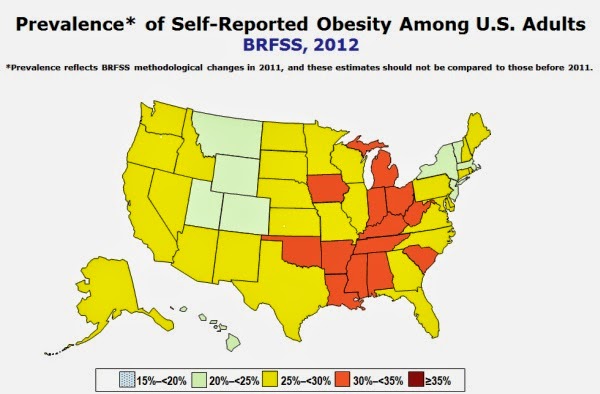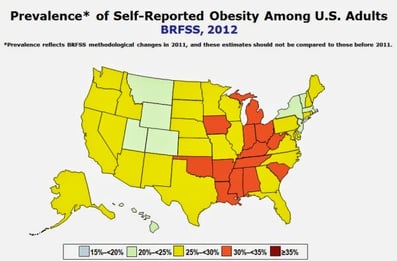Obesity has become a crippling problem in America, surpassing even smoking in terms of associated healthcare costs.1 More than one-third of Americans are obese, while another one-third of them are overweight, according to the Centers for Disease Control and Prevention (CDC).2
How to effectively tackle our nation’s obesity crisis has thus far eluded us. All signs indicate that a combination of approaches will be required, which could include consumer education, changes to food marketing practices, regulations and/or taxes on junk foods, and increased adoption of worksite wellness programs, among others.
Here’s a look at obesity by the numbers, based on CDC data from 2012 (the last year for which published data is available):
· More than one-third of U.S. adults (34.9%) were obese as of 2012.
· The U.S. state with the lowest prevalence of obese adults was Colorado, at 20.5%, while Louisiana had the highest prevalence, at 34.7%. No state had a rate under 20%.
· Higher income women were less likely to be obese than lower-income women.
· Education level made a difference in terms of women’s obesity rate -- women with college degrees were less likely to be obese than less educated women. This same trend did not hold for men, however; among men there was no significant relationship between obesity and education.
· The prevalence of obesity by region was as follows:
o Midwest- 29.5%
o South- 29.4%
o Northeast- 25.3%
o West- 25.1%
Tackling our nation’s obesity problem will require a multi-pronged approach. Our eating patterns and lifestyles have changed dramatically in the last 50-100 years, yet our physiology has gone unchanged for thousands of years. Employers can do their part in positively influencing the health landscape of America by instituting employee wellness programs that encourage employees to adopt and maintain a healthy diet and fitness program.
Graphic source: Centers for Disease control (CDC)
Sources:








